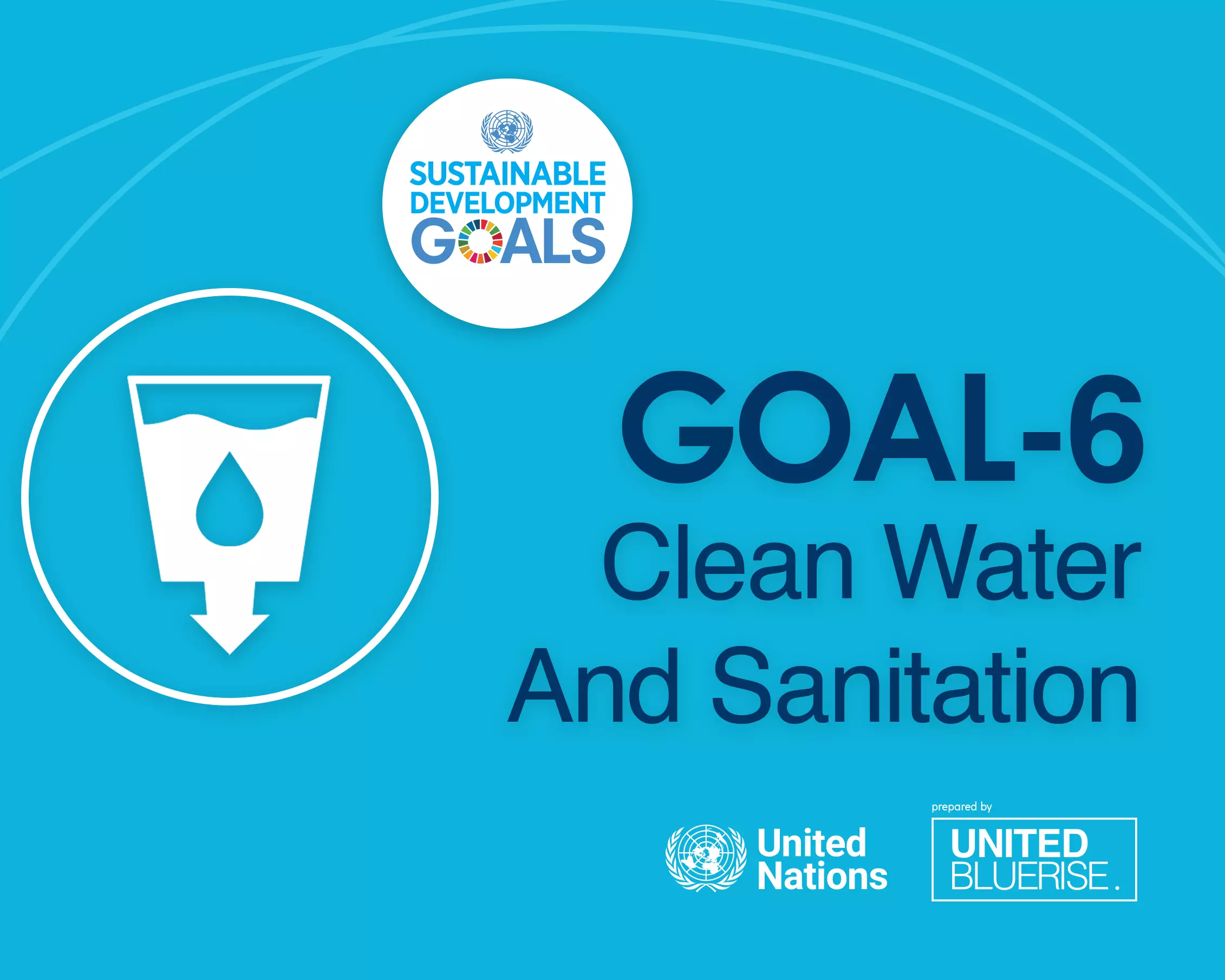SDG Goal 6: Clean Water And Sanitation For All

Sustainable Development Goal 6 is about “clean water and sanitation for all”. It is one of 17 Sustainable Development Goals established by the United Nations General Assembly in 2015, the official wording is: “Ensure availability and sustainable management of water and sanitation for all.”
Access to safe water, sanitation and hygiene is the most basic human need for health and well-being. Billions of people will lack access to these basic services in 2030 unless progress quadruples. Demand for water is rising owing to rapid population growth, urbanization and increasing water needs from agriculture, industry, and energy sectors.
Decades of misuse, poor management, over extraction of groundwater and contamination of freshwater supplies have exacerbated water stress. In addition, countries are facing growing challenges linked to degraded water-related ecosystems, water scarcity caused by climate change, underinvestment in water and sanitation and insufficient cooperation on transboundary waters.
To reach universal access to drinking water, sanitation and hygiene by 2030, the current rates of progress would need to increase fourfold. Achieving these targets would save 829,000 people annually, who die from diseases directly attributable to unsafe water, inadequate sanitation and poor hygiene practices.
Goal 6 Targets:
SDG 6 has eight targets. Six of them are to be achieved by the year 2030, one by the year 2020, and one has no target year. An SDG 6 Baseline Report in 2018 found that “less than 50 percent of countries have comparable baseline estimates for most SDG 6 global indicators”.
6.1 By 2030, achieve universal and equitable access to safe and affordable drinking water for all
6.2 By 2030, achieve access to adequate and equitable sanitation and hygiene for all and end open defecation, paying special attention to the needs of women and girls and those in vulnerable situations
6.3 By 2030, improve water quality by reducing pollution, eliminating dumping and minimizing release of hazardous chemicals and materials, halving the proportion of untreated wastewater and substantially increasing recycling and safe reuse globally
6.4 By 2030, substantially increase water-use efficiency across all sectors and ensure sustainable withdrawals and supply of freshwater to address water scarcity and substantially reduce the number of people suffering from water scarcity
6.5 By 2030, implement integrated water resources management at all levels, including through transboundary cooperation as appropriate
6.6 By 2020, protect and restore water-related ecosystems, including mountains, forests, wetlands, rivers, aquifers and lakes
6.A By 2030, expand international cooperation and capacity-building support to developing countries in water- and sanitation-related activities and programmes, including water harvesting, desalination, water efficiency, wastewater treatment, recycling and reuse technologies
6.B Support and strengthen the participation of local communities in improving water and sanitation management
Water Action Decade, 2018-2028
40 per cent shortfall in freshwater resources by 2030 coupled with a rising world population has the world careening towards a global water crisis. Recognizing the growing challenge of water scarcity, the UN General Assembly launched the Water Action Decade on 22 March 2018, to mobilize action that will help transform how we manage water.
How UNITED BLUERISE Can Help
We, at UNITED BLUERISE, aim to promote rewarding sustainable solutions where the health benefits of a “pure-living” truly meet in parallel with environment challenges of a “plastic-free” world.
The goal for all of us is to stand up for an ideal and unite towards a better world by sharing facts, ideas and advice on how to live a more responsible life. Our consuming culture is polluting our planet. We need prompt lifestyle changes when it comes to single-use plastic. Our goal is ultimately to reduce plastic waste. Plastic is not only polluting our planet and impacting communities around us, but it’s also making its way into our bodies through the air we breathe, food we eat, and water we drink.
Article: QL-7133
Source: www.un.org/sustainabledevelopment/